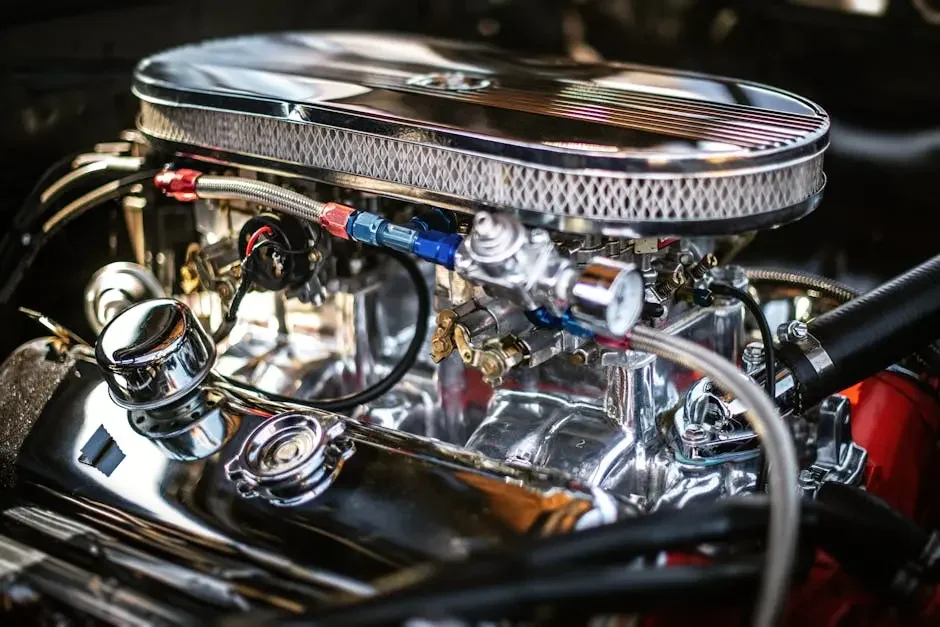How Does Surface Grinding Extend the Life of an Engine?
In the world of engine maintenance, understanding the importance of surface grinding can make a significant difference. This technique not only enhances performance but also extends the lifespan of an engine. Let's delve into how surface grinding achieves this and why it should be part of your engine care routine.
Understanding Surface Grinding
Surface grinding is a precision machining process that involves removing material from a workpiece to achieve a flat and smooth surface finish, vital for engine components.
This technique plays a foundational role in ensuring that every component of an engine fits together seamlessly. When parts are uneven or flawed, it can lead to a cascade of problems that affect overall engine performance.
By focusing on creating a finely tuned surface, surface grinding guarantees that your engine operates harmoniously, eliminating unnecessary stress and wear on individual parts.
The Role of Surface Finishing in Engine Performance
A smooth engine surface allows for better sealing and reduces friction, which is essential for optimal engine performance.
When engine surfaces are well-finished, they promote a tighter seal between components, minimizing oil leaks and enhancing the efficiency of combustion.
Moreover, the reduction in friction means less heat generation during engine operation, which directly correlates with improved fuel efficiency and reduced wear.
The result? An engine that doesn't just run well but runs efficiently, maximizing output while minimizing stress on its internal components.
Removing Imperfections and Wear
Surface grinding helps eliminate minor surface flaws and wear patterns that can cause engine inefficiencies and damage over time.
Even small imperfections can lead to significant issues. For instance, a tiny scratch may seem inconsequential, but it can disrupt oil flow or create hot spots during engine operation.
By undertaking surface grinding, we can proactively address these issues, ensuring that every tiny imperfection is smoothed out, paving the way for enhanced durability and reliability.
This process not only extends the lifespan of the components but also fosters a healthier engine overall, allowing it to operate without the risk of unexpected failures.
Enhancing Component Fit and Tolerance
By achieving precise dimensions, surface grinding ensures optimal fitting of engine parts, reducing the chances of excessive wear and potential engine failure.
When parts fit together perfectly, they function collaboratively, promoting a more efficient operation. Tight tolerances mean that every component is held securely where it belongs, reducing vibrations and enhancing performance.
Additionally, with a proper fit, the likelihood of breakdowns or premature wear diminishes significantly. This maintenance step ensures that your engine remains in top condition much longer.
So, if you want to safeguard your investment in an engine, consider regular surface grinding. It is a small step that has profound implications for your engine's longevity.
Regular Maintenance: The Key to Longevity
Incorporating surface grinding into regular engine maintenance routines can significantly extend the life of the engine and improve its overall performance.
Just like any other aspect of vehicle care, regular attention to surface grinding can prevent larger problems from emerging down the road. Think of it as a preventive measure that pays dividends.
Routine surface grinding not only extends the engine's lifespan but also enhances your driving experience with smoother operation and higher efficiency.
Ultimately, embracing surface grinding as part of your maintenance regimen can mean the difference between a well-functioning engine and one that struggles due to neglect. Don't overlook this vital practice!
Final Thoughts on Engine Longevity
In summary, surface grinding is a crucial process for maintaining engine health. By ensuring a smoother surface, removing imperfections, and enhancing component fit, it contributes directly to longevity and performance. Investing time and resources in surface grinding can lead to a more reliable and efficient engine. Remember, a well-maintained engine is a happy engine!

